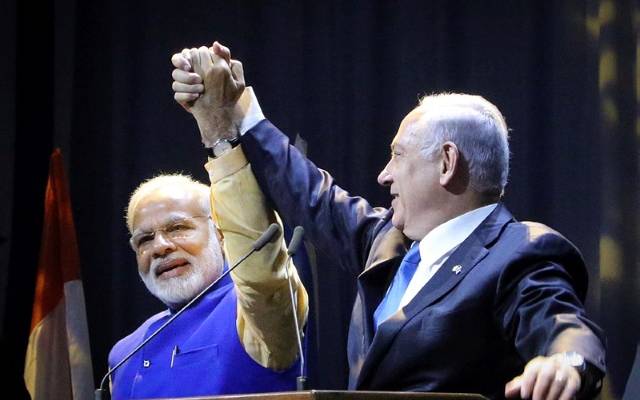By Aryeh Savir, TPS
Pro-Israel Indian Prime Minister Narendra Modi has won the elections in a landslide, while anti-Israel elements have essentially been wiped off the political map.
According to the latest polls, Modi’s Bharatiya Janata Party (BJP) won well over 300 seats, taking the majority in the parliament.
The opposition, led by the Congress Party and Rahul Gandhi, is ahead in fewer than 100. Some 8,000 candidates and some 670 political parties ran in the six-week-long voting process that involved 600 million people.
This is the first time in 50 years that an Indian leader wins a second term.
Relations between Israel and India have warmed up considerably in recent years, especially since Modi took office.
Modi is responsible for the tectonic shift in the country’s foreign policy, a fundamental departure from India’s traditional support of the Arabs to an alliance with Israel.
Prime Ministers Netanyahu and Modi met at the UN in September 2014, the first such meeting in over a decade. Netanyahu last visited India in January 2018, reciprocating Modi’s visit to the Jewish State in July 2017.
In the meantime, the All India Kisan Sabha (AIKS) was almost eliminated in the elections.
AIKS, the largest national organization representing farmers in India, announced in October 2017 that it endorsed the BDS (Boycott, Divestment and Sanctions movement) against Israel until it “complies with international law, in order to stand for the rights of the Palestinian people and to resist the corporate takeover of the Indian agriculture sector by Israeli companies.”
AIKS is a communist organization that is spread across 21 states in India and has over 16 million members.
Similarly, the Communist-Marxist party in the Indian state of Bengal, which ruled for over four decades and was a supporter of anti-Israel elements, has also suffered its worst defeat in 50 years.
Lev Eran, an expert on Israel-Indian relations, explained that elections results are really good news for Israel, and that while the relations between the two countries are close, they can grow even closer.
India has shifted from voting against Israel at the United Nations to abstaining in such resolutions. It can still move to support Israel.
Furthermore, India condemned the US’ relocation of its embassy from Tel Aviv to Jerusalem a year ago. Modi can shift his support for such a move.
